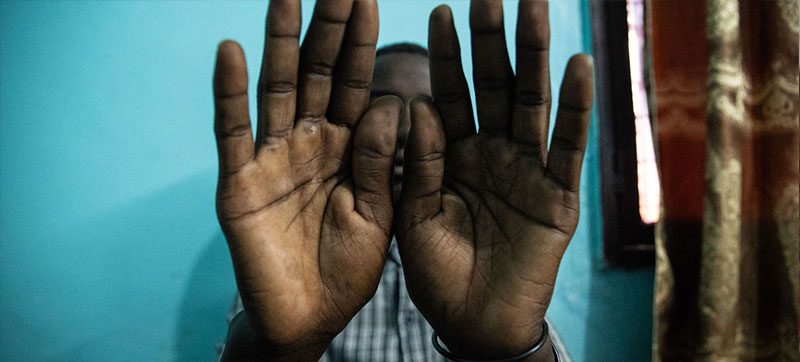 Human Trafficking
Human Trafficking
Victims of human trafficking being ‘punished and stigmatized’
New York: Victims of trafficking by terrorist groups are too often being punished instead of protected, a human rights expert warned the General Assembly this Wednesday.
Siobhán Mullally, UN Special Rapporteur on trafficking in persons, said States fail to identify and protect victims, often because of their alleged association with terrorist groups, and related stigma, discrimination, and racism.
“States have an obligation, without exception, to identify and protect victims of human trafficking and must become more attuned to the needs of people trafficked by terrorist groups and as a result of conflict,” she said
According to Mrs. Mullaly, instead of receiving protection, these victims “are being punished and stigmatized.” For her, this is “a very serious concern.”
Vulnerable children
The expert was presenting a report to the General Assembly about continuing failures to identify and assist victims of trafficking, and protect their human rights.
“Trafficking for purposes of forced marriage, sexual exploitation, forced labour and forced criminality is a strategy used by terrorist groups, and is continuing with impunity because of these failures”, she said.
The Special Rapporteur informed that vulnerable children are disappearing from refugee camps and from camps for internally-displaced people.
Young people are also being targeted online by terrorist groups and recruited into lives of exploitation, a problem that has become even more severe during the COVID-19 pandemic.
“In addition to being exploited for sex or forced labour, children may also be exploited in combat, for planting explosives, carrying out armed attacks and suicide bombings”, Mrs. Mullaly said.
Call to action
States and all humanitarian actors have obligations under the Palermo Protocol, which aims to prevent, suppress and punish people-trafficking.
Under international human rights law, these actors should also identify victims of trafficking early and then provide specialised medical, psychological and legal assistance.
“The obligation of non-discrimination is a core norm of international human rights law and applies to States’ obligations to protect the human rights of all victims of trafficking,” the human rights expert said.
Ms. Mullaly concluded with a call on peacekeeping operations, asking them to do more to prevent human trafficking and to identify and protect victims, especially in countries in transition from conflict to peace.
All independent UN rights experts are appointed by the Human Rights Council, and work on a voluntary basis. They serve in their individual capacity, and are neither UN staff, nor do they receive a salary from the Organisation.
Support Our Journalism
We cannot do without you.. your contribution supports unbiased journalism
IBNS is not driven by any ism- not wokeism, not racism, not skewed secularism, not hyper right-wing or left liberal ideals, nor by any hardline religious beliefs or hyper nationalism. We want to serve you good old objective news, as they are. We do not judge or preach. We let people decide for themselves. We only try to present factual and well-sourced news.







